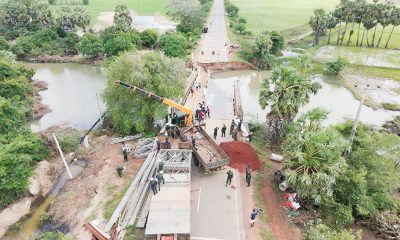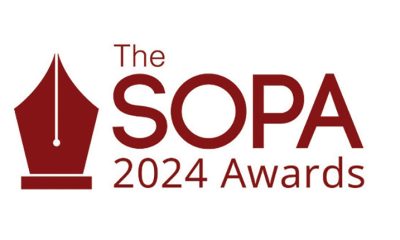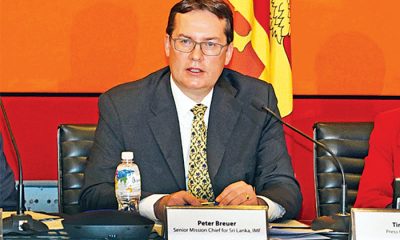Business
Sri Lankan tourism seen as bouncing back with positive influx of arrivals

Sri Lanka Tourism Promotion Bureau (SLTPB) with the support of Sri Lanka Tourism Development Authority (SLTDA) and Sri Lanka Convention Bureau (SLCB) , marked a milestone in its tourist arrivals by receiving 624,874 tourist arrivals by end of June this year. This is a significant increase when compared with the number of tourist arrivals received for the year 2022.
The total number of tourist arrivals received up to December last year (2022) was 719,978. Due to the continuous promotional efforts and marketing campaigns, Sri Lanka Tourism, as the National Tourism Organization, has been able to get back to business and encourage more tourist arrivals to Sri Lanka from all parts of the world, despite all the challenges it had to face during the Covid Pandemic and the Economic crisis. India established itself as the most important source market by bringing in the highest number of arrivals to Sri Lanka. The other source markets such as UK, Russia, Australia, China , Germany , Canada, Maldives , United States, France also made an impact for the arrivals upto June this year. .
It has been a long journey for Sri Lanka Tourism throughout the years but nevertheless, it has bounced back by welcoming a large number of tourist arrivals consisting of an average of 100,000 per month. This is due to the continuous promotional activities of SLTPB, in collaboration with the SLTDA and SLCB who have given their tremendous support. Up to end of May 2023 Sri Lanka Tourism has generated an income of USD752 mn , thereby actively contributing to the Economy.
Sri Lanka Tourism also briefed the media and Industry recently regarding its achievements and progress made during the past one year and its plans for future. Sri Lanka Tourism participated in several Mainstream trade fairs such as the ATM Dubai, ITB Berlin, MITT Russia, and SATTE India and GITF China, and also organized roadshows in major cities in India and China. SLTPB plans to participate at upcoming IFTM in Paris, and WTM in UK during year. As the leading promotional arm of Sri Lanka Tourism, SLTPB has several plans to carry out through this year, including a one-year global campaign targeting key markets, also a domestic campaign to encourage the 22 million Sri Lankans to welcome visitors from around the world.
Sri Lanka Tourism has also been seeking the support of celebrities, travel influencers and bloggers through the visiting Journalist and Blogger Program of the SLTPB, and also promoting Sri Lanka as a film Tourism destination.
Another important initiative of Sri Lanka Tourism is to improve the infrastructure facilities of Sri Lankan tourism locations, and also upgrade all the tourist hotels, also introducing new tourism attractions in the long run. (SLTPB)
Business
Tea market grappling with headwinds as 2025 comes to an end

As the curtain prepares to fall on Sri Lanka’s tea trading year, the penultimate auction of 2025 has painted a picture of a market grappling with headwinds. The sale, catalogued in the aftermath of the disruptive Cyclone Ditwah, presented 6.0 million kilograms to the trade, but was met with a predominantly bearish sentiment, casting a reflective shadow over the year’s closing.
The High and Medium Grown offerings, particularly from the Ex-Estate sector, set a cautious tone. With overall quality described as barely maintained, prices faced downward pressure. The better liquoring Western BOP/BOPF varieties, often a market bellwether, declined by up to Rs. 50 per kg. This easing trend rippled through the Below Best and Plainer categories, which were often cheaper by Rs. 20-40 per kg. Regional nuances were evident: Nuwara Eliya teas remained sluggish, Uda Pussellawa listings weakened, and Uva varieties were mostly steady only where quality was exceptionally upheld, with others declining. The CTC segment mirrored this fragility, with PF1s generally easier by Rs. 20 per kg, while the very bottom end of the market faced severe challenges, becoming at times unsellable.
This internal market dynamic was compounded by a notable sluggishness in global demand. The report notes a concerning inactivity from traditional buyers in the UK and the European continent. While shippers to Japan, China, the CIS, and the Middle East continued to operate, they did so at lower levels of engagement. Activity from South Africa was described as virtually absent, underscoring a broader pattern of restrained international participation.
In stark contrast to this overarching bearishness, the Low Growns sector emerged as a relative bastion of stability. With approximately 2.45 million kilograms on offer, this category witnessed fair demand across the board. In the Leafy and Semi-Leafy catalogues, Select Best and Best BOP1s held firm, with others even appreciating. Well-made OP1s also generally maintained their ground, though poorer teas at the bottom saw substantial declines. The Tippy and Premium catalogues told a similar story of selectivity, where well-made FBOPs, Very Tippy teas, and the best varieties either held firm or appreciated, while poorer descriptions faced irregular and easier conditions.
The tale of this penultimate sale, therefore, is one of a stark dichotomy. The market narrative bifurcates into a struggling, quality-sensitive mainstream estate sector weighed down by climatic after-effects and muted Western demand, and a more resilient Low Growns market where quality continues to find its price. This divergence highlights the increasingly selective nature of the global tea trade.
As the industry looks toward the final sale and the year’s reckoning, the events of this penultimate auction offer sobering reflection. The impact of Cyclone Ditwah, both real and psychological, coupled with the cautious stance of key international buyers, has applied palpable pressure. Yet, the enduring firmness for the best Low Grown teas provides a counter-note of confidence, suggesting that in an uncertain global environment, uncompromising quality and specific origin characteristics remain Sri Lanka’s most reliable assets. The challenge heading into the new year will be navigating this two-tiered reality.
By Sanath Nanayakkare ✍️
Business
First Capital to restore 15 acres of forest through partnership with WNPS

First Capital Holdings PLC, a subsidiary of JXG (Janashakthi Group) and Sri Lanka’s pioneering full-service investment institution, announced the signing of a Memorandum of Understanding (MoU) with the Wildlife and Nature Protection Society (WNPS) through its PLANT initiative (Preserving Land and Nature (Guarantee) Limited) to support a large-scale forest restoration initiative in the central highlands of Sri Lanka.
First Capital’s sustainability journey is anchored in the belief that long-term success stems from empowering people through financial literacy and responsible social and environmental practices. At the heart of our agenda is a commitment to advancing financial stability, enabling individuals and communities to make informed financial decisions, build economic strength and contribute meaningfully to national development.
This core focus is complemented by initiatives in community engagement, climate action, and environmental protection, ensuring a balanced approach to sustainable growth. Aligned with SLFRS S2 and global best practices, we champion programmes that promote inclusive progress, sustainable development and long-term wellbeing across Sri Lanka. By embedding financial literacy and sustainability into our core strategies, we aspire to create a financially empowered and environmentally conscious nation.
Business
Access Engineering gets contract for 615-unit housing project in Kirulapone

The Cabinet of Ministers has approved the proposal presented by Transport, Highways and Urban Development Minister Anura Karunathilake on the recommendation of the Cabinet appointed standing procurement committee to award Access Engineering PLC the contract to build 615 housing units at Colombage Mawatha, Kirulapone, which had been stalled.
On 30 December 2024, the Cabinet of Ministers approved following the relevant procurement process to select a contractor for the design and construction of the remaining works of the project.
“Accordingly, the Urban Development Authority (UDA) has invited bids and four bids have been received,” Cabinet Spokesman and Minister Dr. Nalinda Jayatissa said at the weekly post-Cabinet meeting media briefing yesterday.
He said the Cabinet of Ministers approved awarding the relevant contract to Access Engineering PLC based on the recommendations submitted by the High Level Standing Procurement Committee regarding these bids.
-

 News3 days ago
News3 days agoMembers of Lankan Community in Washington D.C. donates to ‘Rebuilding Sri Lanka’ Flood Relief Fund
-

 Latest News6 days ago
Latest News6 days agoLandslide early warnings issued to the districts of Badulla, Kandy, Kurunegala, Matale and Nuwara-Eliya extended till 8AM on Sunday (21)
-

 News4 days ago
News4 days agoAir quality deteriorating in Sri Lanka
-

 Business5 days ago
Business5 days agoBrowns Investments sells luxury Maldivian resort for USD 57.5 mn.
-

 Editorial6 days ago
Editorial6 days agoCops as whipping boys?
-

 Latest News7 days ago
Latest News7 days agoLandslide early warnings issued to the Districts of Badulla, Kandy, Kurunegala, Matale and Nuwara Eliya extended
-

 News4 days ago
News4 days agoCardinal urges govt. not to weaken key socio-cultural institutions
-

 Features5 days ago
Features5 days agoAnother Christmas, Another Disaster, Another Recovery Mountain to Climb

























